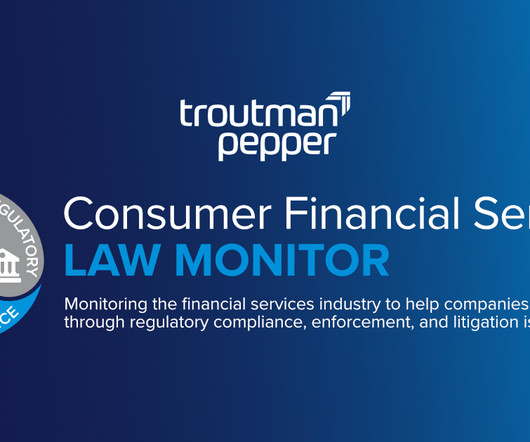Florida Bankruptcy Court Sanctions Debt Buyer for Seeking to Collect Debt that Consumer Failed to Schedule in Bankruptcy Case
Troutman Sanders
JANUARY 29, 2024
As background, in 2002, the debtor and her then-spouse jointly filed a “no asset” Chapter 7 bankruptcy petition. She listed 45 unsecured creditors in her schedules of assets and liabilities, including the $7,400 credit card debt at issue.












Let's personalize your content